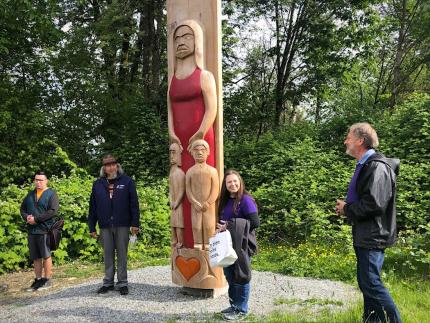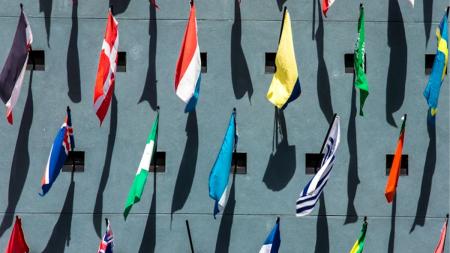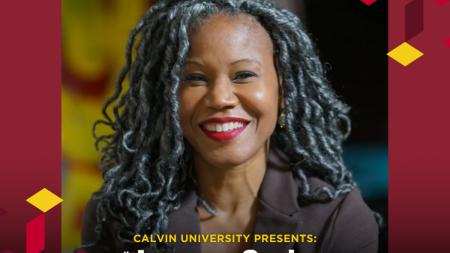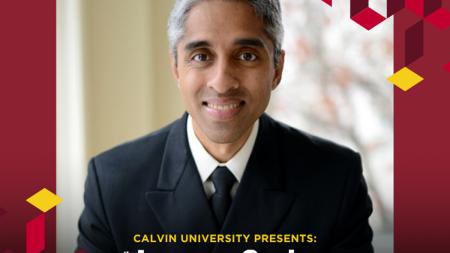Churches Walk in the Spirit of Reconciliation

“We just held our 7th Annual Walk for Reconciliation with Residential School Survivors. Our numbers and church participation have been growing steadily over those years,” said Dennis DeGroot, a member of Willoughby CRC, Langley, B.C., who serves on the planning team for the event.
Originating in 2015 after the Truth and Reconciliation Commission of Canada released its final report, the walk travels sections of the 40 kilometers (25 miles) between Fort Langley (Langley, B.C.) and St. Mary’s residential school in Mission, B.C. The event takes place over several days during the last week of May. The goals of the walk are to “promote awareness, rebuild relationships, express solidarity, and build a community of reconciliation.”
This year’s walk took on special meaning as it fell on the anniversary of finding unmarked graves of children who attended a residential school in Kamloops, B.C. Investigations into the deaths and graves of Indigenous children at residential schools were made in response to three of the 94 calls to action recommended by the Truth and Reconciliation Commission.
The walk offers literal and figurative steps for participants to take toward reconciliation. A website designed to complement the experiences of the walk shares learning opportunities with participants such as video testimony from survivors of the school.
A flier promoting the event reads, “We pray that all of our paths are ones of healing, of peace, of restoration, and of loving regard for one another.”
This year members from Trinity CRC and Hillside CRC, both of Abbotsford, B.C., joined with Willoughby CRC members to tour St. Mary’s with Indigenous Elder Albert Halsie, a Stó:lō storyteller. The tour began in the school chapel and moved to the gymnasium and then to the residence for kindergarten-to-grade-2 girls. Participant Liz Tolkamp described the experience as “poignant.”
“Being joined by others from the CRC on this walk was encouraging, especially since some had joined because of having recently participated in a Hearts Exchanged cohort,” said Tolkamp. Hearts Exchanged prepares Christians in the CRC to build relationships with Indigenous communities that are marked by mutual respect and reciprocity.
Kristen Schut and her family had learned about the event through their Hearts Exchanged facilitator. “We wanted to be a part of the Walk for Reconciliation because we feel that it is very important to learn more about and make connections with our Indigenous brothers and sisters,” she said.
DeGroot’s hopes for the community and the church go deeper than having an annual event. “I believe if we approach the work of reconciliation, trusting our God of abundance and not believing and holding onto the myth of scarcity, we will find ways to heal the deep pain caused by residential schools,” he said.
Events like this complement the ongoing work of reconciliation in the CRC, particularly the Hearts Exchanged program. Hearts Exchanged is currently offering opportunities for people to participate in a cohort this fall.


